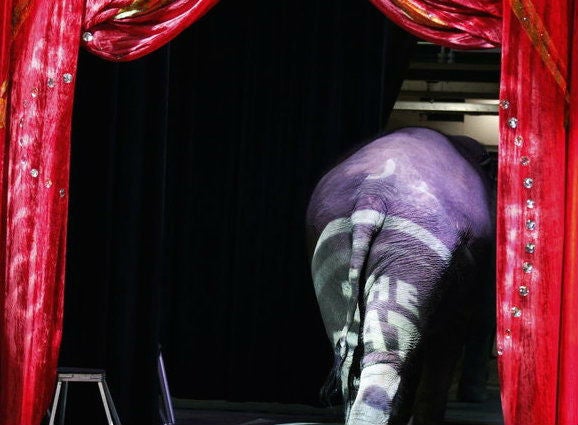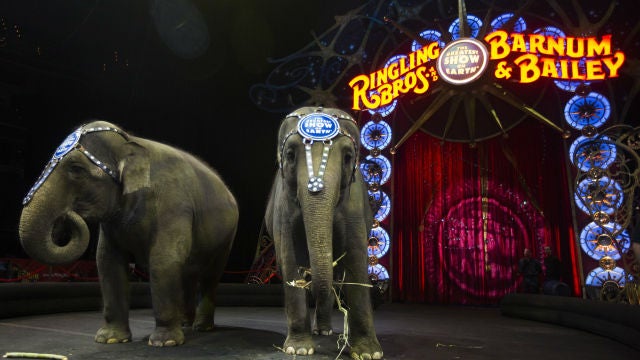Ringling Bros circus will retire all its elephants by May after pressure from activists
The celebrated circus troupe has faced pressure from activists and local laws

Your support helps us to tell the story
From reproductive rights to climate change to Big Tech, The Independent is on the ground when the story is developing. Whether it's investigating the financials of Elon Musk's pro-Trump PAC or producing our latest documentary, 'The A Word', which shines a light on the American women fighting for reproductive rights, we know how important it is to parse out the facts from the messaging.
At such a critical moment in US history, we need reporters on the ground. Your donation allows us to keep sending journalists to speak to both sides of the story.
The Independent is trusted by Americans across the entire political spectrum. And unlike many other quality news outlets, we choose not to lock Americans out of our reporting and analysis with paywalls. We believe quality journalism should be available to everyone, paid for by those who can afford it.
Your support makes all the difference.Two of America’s most celebrated circus troupes are to end their use of live elephants - bowing to pressure from animal activists and local authorities which have increasingly passed “anti-circus” laws.
The parent company of the Ringling Bros and Barnum & Bailey Circus, said they would be ending all its elephant acts in May, 18 months earlier than it had vowed to do.
The company had announced last March that it would retire the herd of elephants by 2018. But officials last the company told the Associated Press that as they examined the issue, the discovered that building new structures for the retired animals would take less time than anticipated. It currently costs $65,000 yearly to care for each elephant, 11 of which tour with the circus troupes.
“They’ll be joining the rest of the herd,” said Alana Feld, Ringling’s executive vice president, referring to the company’s collection of Asian elephants, the largest in North America.
Animal rights groups on Monday applauded Ringling’s commitment to getting rid of the elephants early.
“Like the elephants themselves, it had outsized importance because of the symbolic value of the enterprise,” wrote Wayne Pacelle, president and CEO of The Humane Society of the United States.
“Ringling had been one of the biggest defenders of this kind of archaic animal exploitation, and the imminent end of its traveling elephant acts signaled that even one of the most tough-minded and hardened animal-use companies now recognised that the world is changing and it had to adapt.”

Elephant acts have been showcased by Ringling for more than a century and have often been featured on its posters, the AP said.
But because so many cities and counties have passed “anti-circus” and “anti-elephant” ordinances, it became difficult to organize tours of three traveling circuses to 115 cities each year.
Los Angeles and Oakland prohibited the use of bull-hooks by elephant trainers and handlers last April. The city of Asheville, North Carolina, also ruled out wild or exotic animals from performing in the municipally owned, 7,600-seat US Cellular Center.
Ringling’s new show will begin in July, albeit without their former star performers.
Join our commenting forum
Join thought-provoking conversations, follow other Independent readers and see their replies
Comments